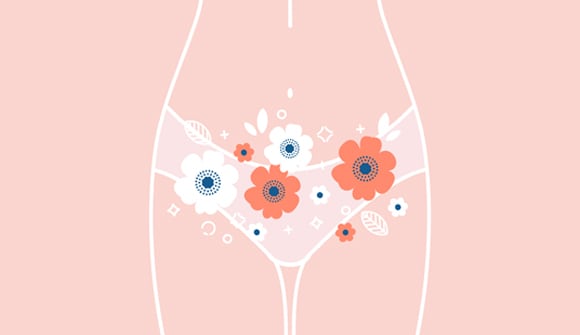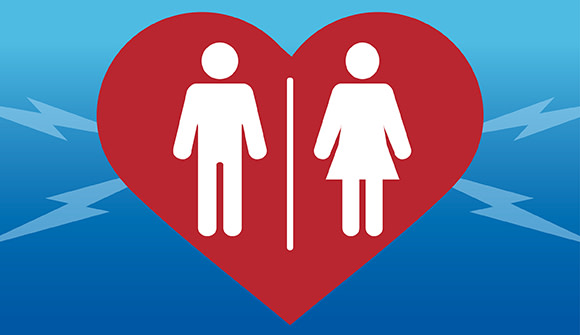Care for down there
Health trends that could harm women's intimate areas.
Article Date:

The self-care industry has reached a new frontier with a rapid rise in skincare, hygiene and sexual wellness products specifically targeting women’s, well, lady bits. Increased awareness around feminine wellness, backed by social media-savvy brands, has changed the way people view and care for their intimate areas, leading to more products and services pitched to women than ever before.
Products range from washes and suppositories to moisturizers and highlighters. You can even get a sheet mask for your vagina, if you’re so inclined.
But, do women actually need these products?
“Unfortunately, it’s common for women to feel insecure about their vaginal appearance and scent,” said Staci Tanouye, MD, an OB/GYN with Baptist Health and Women’s Care Florida. “So we, as consumers, need to remember the feminine health and wellness market is a billion-dollar industry built upon purity culture and the notion that vulvas and vaginas need to be revitalized in a way that is not natural. If not understood and used correctly, some of these products could end up doing more harm than good to our bodies.”
Twisted terminology
Many of these products use the blanket term “vaginal health,” when it isn’t exactly correct.
The vagina is actually the inner canal that connects the uterus and vulva, which is the external part of the genitalia.
“This distinction is very important for the use and application of feminine care products,” said Dr. Tanouye. “Many products don’t specify whether they are for internal or external use. Some women may read a label that says ‘vaginal pH balancing’ and use the product inside the vagina, when it is actually meant for external use only.”
Dr. Tanouye further explained, “Teens who are still learning about their bodies may be at greater risk for product misuse and health complications. If a product made for external use only gets in the vagina, it can damage the natural microbiome and lead to increased risk of bacterial, yeast and sexually transmitted infections.”
A little TLC
Contrary to popular belief, the vagina is a self-cleaning organ and does not need to be washed.
“The vagina has a very acidic environment and can maintain a normal pH balance on its own, which helps prevent the overgrowth of bacteria and yeast that can lead to infections,” said Dr. Tanouye. “We have a lot of data that shows washing inside or douching the vagina with any product actually increases the risk of infection because it disrupts this natural balance. As for products claiming to balance pH levels, the vagina and vulva already do that themselves, so additional products aren’t necessary.”
But Dr. Tanouye does recommend women wash and clean their vulvar area daily using only warm water. If women feel they need something more, it’s best to try a gentle, dermatologist-tested and fragrance-free body cleanser.
Issue-causing irritants
Additives and allergens can easily irritate the highly sensitive skin of the vulvar area. If products with these ingredients seep inside the vagina, they can also throw off the pH balance. So, it’s important to know and understand a product’s ingredients.
Key ingredients to watch out for include:
- Fragrance: A potential allergen that can cause rashes or irritation to the vulvar area and strip the vagina of natural, good bacteria.
- Glycerin: A moisture-retaining agent that can contribute to yeast infections.
- Petroleum: An oil-based lubricant that can cling to the skin and alter the vagina’s pH balance.
“Fragrance, whether it’s chemically added or an essential oil, is the most common allergen in any topical product and is usually more harmful than helpful when it comes to the vagina,” said Dr. Tanouye. “I also recommend staying away from lubricants that say ‘warming,’ ‘intense,’ or ‘cooling,’ because they have potentially irritating ingredients added to synthesize those sensations.”
Dr. Tanouye added, “If you do feel discomfort after using a product, I would look at the ingredients list and start eliminating from there.”
Words of wisdom
Women should try whatever products they want to and feel comfortable with, Dr. Tanouye just cautions them to read the labels and understand the directions and intent beforehand.
“Vulvas and vaginas are already perfect as is,” said Dr. Tanouye. “It’s best to go by the rule that less is more. As the saying goes, ‘if it ain’t broke, don’t fix it.’ And definitely don’t try to fix it without your OB/GYN’s guidance.”
Do you have questions or concerns about vaginal health? Call 904.202.4HER (4437) to make an appointment with a knowledgable, compassionate OB/GYN.



